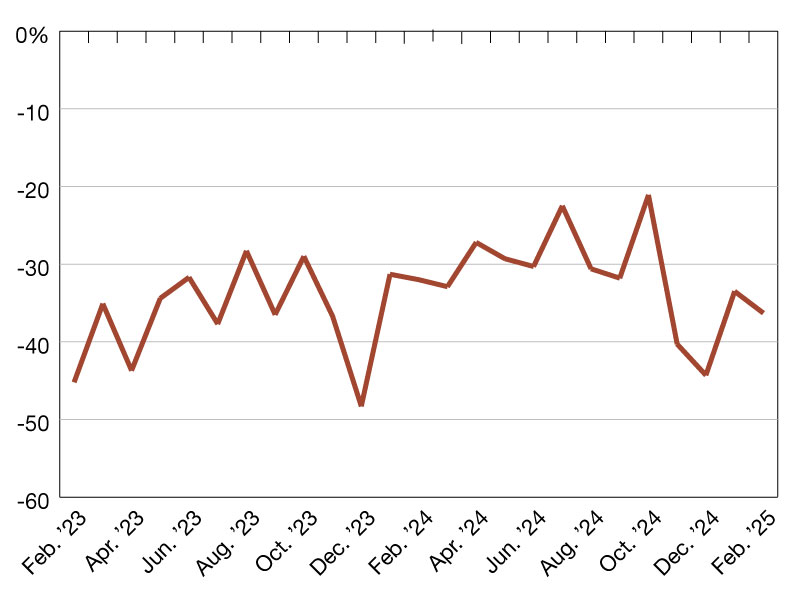Is the Simon-Taubman Merger Really Off?
Retail real estate experts speculate that Simon Property Group’s announced decision to call off its $3.6 billion acquisition of Taubman Centers Inc. may be a tactical move.
Is Simon Property Group really walking away from its $3.6 billion bid to buy Taubman Centers Inc. or just negotiating a lower price for the 25 million-square-foot portfolio of high-quality malls because of the pandemic’s impact on retail? That’s the question retail analysts and experts were debating Thursday, one day after Simon “exercised its contractual rights” to terminate the deal and filed a suit in Michigan, where Taubman is based.
READ ALSO: CPE’s Coronavirus Coverage
“This to my mind is all about costs and it’s about how to strike the right balance between the two companies and the two groups of shareholders,” James Sullivan, BTIG managing director and REIT analyst, told Commercial Property Executive. Last month, Sullivan questioned whether the deal was in jeopardy, noting that other M&A deals have broken off since the pandemic began spreading in the U.S.
“Considering the cumulative, adverse effect of the COVID-19 pandemic on Taubman Centers Inc., the deal became less attractive with greater risk as reflected by the decline in the sale price from $53.12 per share, when the merger was first announced in February 2020, to $36.17 per share as of June 10. Effectively, Simon Property Group would now be merging with a very different company,” said Michael Lagazo, an independent retail real estate adviser based in San Diego, Calif.
Simon, the nation’s largest owner and operator of shopping malls, stated Wednesday it based its decision to scrap the deal on two separate and independent grounds. First, that the pandemic has had a unique material impact on Taubman compared to others in the retail industry, and second, that Taubman had breached its obligations—which were a condition to closing the deal—relating to operation of its business. The all-cash transaction was expected to close around June 30, with Simon paying $52.50 per share. It closed Thursday at $36.27 per share. Taubman owns 24 high-end retail assets primarily in the U.S., including the Beverly Center in Los Angeles, Dolphin Mall in Miami and The Mall at Short Hills in Short Hills, N.J.
Simon says
The merger agreement, which called for Simon to acquire an 80 percent interest in Taubman and The Taubman Realty Group LP, specifically gave Simon the right to terminate the transaction in the event that a pandemic disproportionately hurt Taubman, according to Simon.
“Taubman’s significant proportion of enclosed retail properties located in densely populated metropolitan areas, dependence on both domestic and international tourism at many of its properties, and its focus on high-end shopping have combined to impact Taubman’s business disproportionately due to the COVID-19 pandemic, when compared to the rest of the retail real estate industry. In addition, Taubman has breached its obligation to operate its business in the ordinary course,” according to a statement from the company. Simon claimed Taubman did not make essential cuts in operating expenses and capital expenditures that other companies made.
“I wasn’t surprised. The world has changed so dramatically since the deal was struck. Valuations have gone down. It’s about getting to the valuation and getting to the right prices under current circumstances,” said Dan Sheridan, partner with Hoffman Strategy Group, a national commercial real estate advisory firm. “My expectation is there may have been a lot of talk between Simon and Taubman over the last several weeks and maybe they weren’t able to reach a compromise. Maybe this is a way for Simon to exercise some leverage to continue those discussions.”
Taubman’s turn
Taubman pushed back on Wednesday about Simon’s “purported termination of the merger agreement” and insisted it intended to move forward with the planned transaction. The Bloomfield Hills, Mich.-based REIT said its shareholders’ meeting to vote on the merger is still set for June 25. Taubman stated it “believes that Simon’s purported termination of the merger agreement is invalid and without merit, and that Simon continues to be bound on the transaction in all respects. Taubman intends to hold Simon to its obligations under the merger agreement and the agreed transaction, and to vigorously contest Simon’s purported termination and legal claims.” It also stated it would pursue monetary damages from Simon, based on the deal price.
Sullivan said the allegation from Simon is that other companies, including Simon itself, were much more aggressive at cutting expenses than Taubman once the pandemic hit and forced a shutdown of malls and most retail centers. For example, Simon suspended or eliminated more than $1 billion of redevelopment and new development projects; cut employees’ base salaries between 10 percent and 30 percent; and David Simon, chairman, CEO & president, reduced his base salary to zero and deferred his approved 2019 bonus.
Sullivan said Taubman cut capital projects by $100 million to $110 million and said it would reduce operating expenses by $10 million annually. He said that “was small compared to what Simon and Macerich were doing” and might leave the company vulnerable on that point. But Sullivan noted Taubman suspended dividends in the second quarter, which was a stronger action than what rival mall company owner Macerich did or Simon indicated it was going to do. “In that respect, Taubman was prudent and had taken stronger action,” Sullivan said.
The question now is: Will the two sides battle it out in court for months, while the retail sector struggles to recover from the first wave and potential future waves of the coronavirus? Or will they try to renegotiate the deal for a better price.
“Simon Property Group appears to have the most to lose due to the $52.50 per share price tag and stands to benefit from the termination of the merger agreement. Taubman Centers intends to hold Simon Property Group to the agreed transaction. Both parties intend to pursue remedies, assert the right to monetary damages and demand specific performance,” Lagazo said. In other words, “Bring on the lawyers.”








You must be logged in to post a comment.